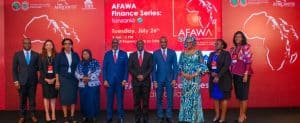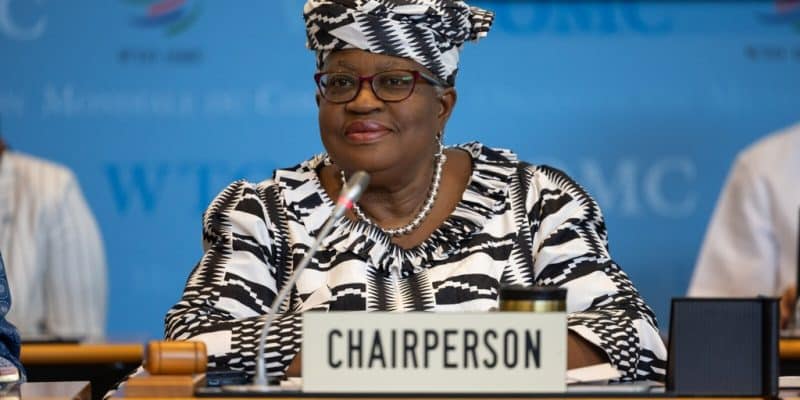First used in 1955 by the psychologist and sexologist John Money in his article entitled "the gender role", the concept of gender has evolved over the years and in 2023 will be at the heart of many debates. The whole issue lies in women's access to education and health, their political representation and their economic participation. In this article, written in the run-up to International African Women's Day on 31 July, AFRIK 21 focuses on the evolution of advocacy for gender equality in the financing of businesses and start-ups. Gender inequality is still a major issue, despite the action taken.
In today’s society, men and women are unequal. Beyond physiology, which is the natural order of things, the gender gap can be seen in political representation, access to education, health and financing, according to a report by the World Economic Forum (WEF), where the gap is estimated at 0.69 on the continent, below the world average of 0.71.
While progress, albeit “slow and fragile”, has been made for several years to reduce inequality in treatment for men and women, this progress has been undermined by shocks such as Covid-19 and other conflicts. For example, funding for businesses was then reduced in favour of humanitarian aid. As for the remaining funding, the lion’s share goes to companies run by men.
According to the report Diversity Dividend: Exploring Gender Equality in the African Tech Ecosystem published in 2023 by Disrupt Africa, an information platform specialising in Africa’s technology ecosystems, African start-ups run by men would capture more than 97% of funding, compared with less than 3% for those run by women. And this is not confined to start-ups.
First of all, there are very few businesses run by women
In the agricultural sector in particular, the financing gap for women in Africa is estimated at 15.6 billion dollars, according to the report entitled: Policy innovations to put women at the centre of the transformation of food systems in Africa, published recently by the Malabo Montpellier Panel, a group of international experts in agriculture who are determining policy options to accelerate progress towards food and nutrition security in Africa.
While it has been shown that empowering women boosts a country’s productivity and economic growth, they still need to have benefited from technical training that enables them to create income-generating activities. In sub-Saharan Africa, however, just 42% of women complete secondary education, according to Erick Yong, co-founder and CEO of Greentec Capital Partners, a German investment company specialising in African start-ups and small and medium-sized enterprises (SMEs). “I’m not even talking about those with technical training. This is due to a cultural context. I think that for the situation to change, there needs to be a fundamental readjustment from the bottom up”, says the manager.
Secondly, existing start-ups are choosing less attractive sectors that require less funding
For some financial institutions operating in Africa, the majority of women are creating businesses or start-ups focused on education and health. These are areas that require less funding, unlike fields such as engineering or fintech, which are chosen by men and require more funds.
According to some development partners, this choice is explained by women’s lack of confidence in launching themselves in this type of field, wrongly labelled as one in which men would excel best.
Traditional social norms are also said to be a major obstacle to gender equality in financing
Social norms and stereotypes are also a major obstacle to women’s access to finance. According to the Affirmative Finance Action for Women in Africa (AFAWA), this inability to access finance is expected to reduce Africa’s gross domestic product (GDP) by 316 billion dollars by 2025.
In 2023, some communities still describe the role of women as secondary. These communities still maintain an ideal of the “housewife” who looks after the children’s upbringing and must be discreet and submissive to her husband. So why should she need to go to school in order to work later to achieve financial independence?
It’s a question that heads of families in these communities ask themselves, before dismissing the future of young girls out of hand
In countries like Nigeria and Ethiopia, for example, women have the lowest level of education in Africa and the world. On average, 40% of girls drop out after primary school. Around 50% leave school before the age of 18 (compared with 30% and 20% in North and South-East Africa), and only 5% reach university, according to the analysis “Voices of African Women: Reframing the Narrative on the Role of Women in African Societies” published in May 2023 by Boston Consulting Group (BCG). In addition to the education that young girls are deprived of, there is also the right to own property in order to start a business.
Read Also –
Added to this are a number of other challenges, including high lending risk, prohibitive interest rates, lack of collateral, barriers to participation posed by existing legal and regulatory frameworks, and the reluctance of financial institutions to respond appropriately to the needs of African entrepreneurs. Yet investing in women’s businesses creates a chain reaction for the better. “Governments have better tax collection, financial institutions have more customers and generate more revenue, businesses and the retail sector also have more customers, which increases revenues, and the households and communities surrounding these women benefit from more income and a better quality of life,” says Jules Ngankam, CEO of African Guarantee Fund (AGF).
AGF’s AFAWA Guarantee for Growth initiative to boost financing for women entrepreneurs in Africa
This is what AGF is aiming to do, with a minimum of 30% women in senior management, more than 40% women on staff and support for women-owned and women-led businesses through one of its guarantee initiatives, AFAWA Guarantee for Growth (G4G), which offers a multi-pronged approach to addressing the constraints faced by women entrepreneurs in Africa. These components include loans, technical assistance through advisory services, as well as support for African governments and key stakeholders to offer support and help remove barriers that hinder the success of women-owned and run businesses.

Kicked off of the first AFAWA Finance Series in collaboration with the African Guarantee Fund (AGF)©AFDB
It is this initiative that has earned AGF the “2X Challenge Investment” accreditation in July 2022. For the record, the “2X Challenge” (in French) was launched at the 2018 G7 Summit as a commitment by development finance institutions (DFIs) to collectively mobilise $3 billion of private sector investment in developing country markets over a 3-year period. In the case of the AGF, which was set up in 2011 by the Danish government, the Spanish government and the African Development Bank (AfDB) with a mandate to facilitate access for small and medium-sized enterprises (SMEs), its ambition is to advance women’s entrepreneurship in Kenya and Africa as a whole.
“Although Kenya has the third highest rate of financial inclusion for women in Africa, with over 78% of the female population holding a bank account, over 90% of female SMEs rely on their own savings rather than borrowing to start, run or grow their businesses. This is unlikely,” says Jules Ngankam, CEO of AGF.
Focus on training and awareness-raising
In addition to granting funding, Melvyn Lubega, a partner at Breega, a European venture capital fund dedicated to financing start-ups in the digital economy, believes that advancing the cause of gender equality in financing in Africa also requires technical training for women, support for start-ups with a capital contribution, but also from the point of view of operationalisation. To this end, Breega has set up a team of experts in human resources, communications and growing business to provide start-ups with practical support.
Breega is also focusing on raising awareness among investors “to tell them that you can also get a significant return on investment, even on societal issues”, explains Melvyn Lubega. This is a strategy that is not yet firmly rooted in the habits of today’s financial institutions.
Inès Magoum








You must be logged in to post a comment.